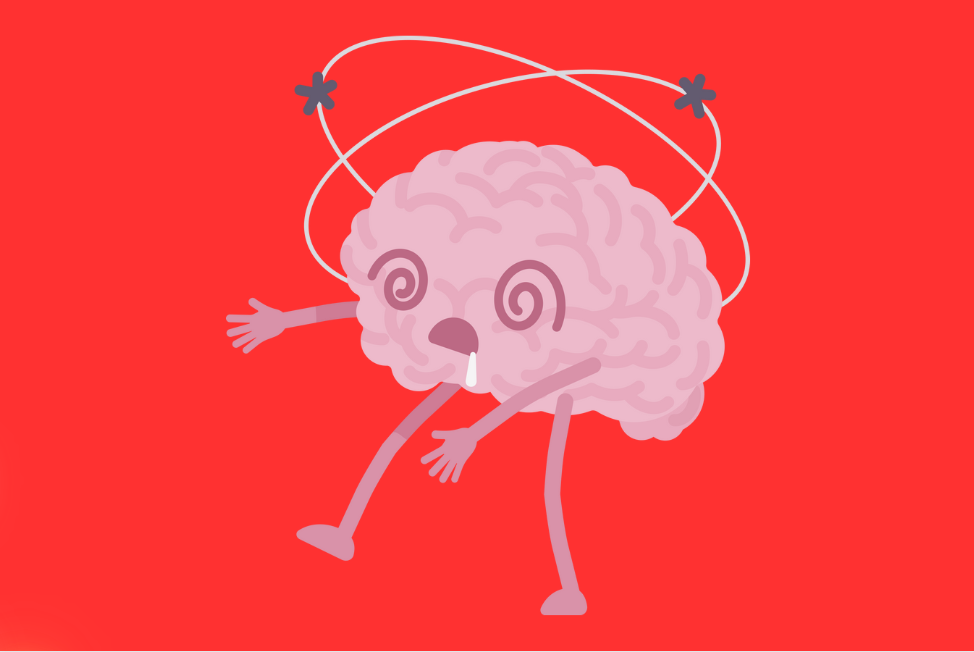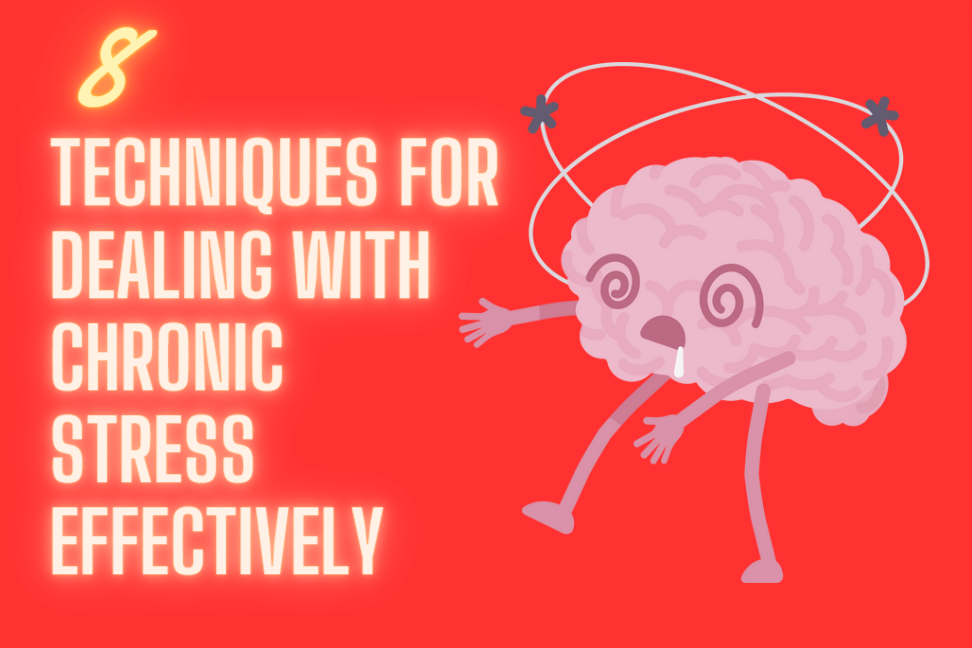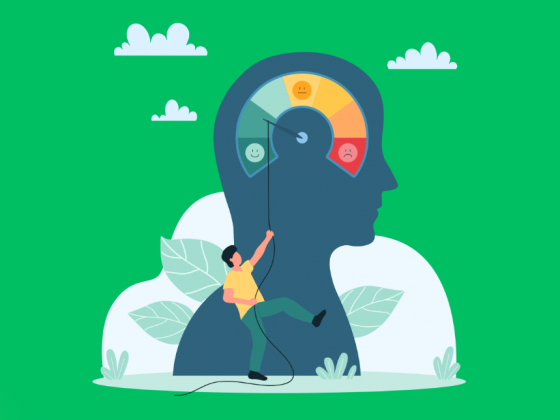Introduction
You’re feeling the weight of chronic stress, and it’s wearing you down.
But there’s good news—you can fight back. With these eight practical techniques, you’ll learn to recognize your stress triggers and tackle them head-on.
From mastering mindfulness to improving your diet, you’ll discover how to soothe your stressed-out mind and body.
Embrace these strategies, and you’ll be on your way to a calmer, more balanced life.
Let’s get started!
Recognizing Stress Triggers
Identifying your stress triggers is the first step toward managing chronic stress more effectively. These triggers are events or situations that spark your stress response, causing you to feel overwhelmed or anxious. To pinpoint them, you’ll need to become a keen observer of your own life.
Start by tracking your daily activities and noting when you feel stressed. Look for patterns. Is it during the morning commute? When you’re managing finances? Or perhaps when you’re interacting with a specific person? It’s vital to recognize these patterns to anticipate and prepare for stressors.
You might find it helpful to keep a stress diary. Write down what happened, how it made you feel, and how you reacted. Did you get a headache? Did you snap at someone? This record-keeping is a powerful tool because it forces you to face your stressors rather than ignore them.
Once you’ve identified your triggers, you can begin to work on strategies to deal with them. Whether it’s through deep breathing exercises, setting boundaries, or seeking professional help, understanding what sets off your stress is the key to taking back control.
Incorporating Mindfulness Meditation
Mindfulness meditation, a technique where you focus on the present moment without judgment, can significantly reduce your stress levels. By practicing this form of meditation, you’re not just relaxing temporarily; you’re actually training your brain to maintain composure in the face of life’s inevitable stresses.
To get started, find a quiet spot where you won’t be disturbed. You can sit on a chair or cushion, ensuring your back is straight but not stiff. Close your eyes and take a deep breath. As you exhale, let go of any tension you’re holding. Now, bring your attention to the natural rhythm of your breath. You’re not trying to change it, just noticing it.
You’ll find your mind wandering; that’s normal. The key is to acknowledge these distractions without criticism and bring your focus gently back to your breath each time. Even a few minutes a day can make a difference.
Establishing Healthy Sleep Patterns
Regularly complementing your mindfulness meditation with consistent, healthy sleep patterns can further bolster your resilience to chronic stress. You’ve probably heard that getting enough sleep is crucial, but it’s not just about quantity—it’s quality that counts. Aim for seven to nine hours of restorative sleep each night.
To achieve this, you’ll want to establish a regular sleep schedule. Go to bed and wake up at the same time every day, even on weekends. This consistency reinforces your body’s sleep-wake cycle, leading to better sleep quality.
Your bedroom environment matters, too. Keep it cool, dark, and quiet. Consider using blackout curtains, earplugs, or white noise machines if you’re sensitive to light and sound. And make sure your mattress and pillows are comfortable.
Limit exposure to screens at least an hour before bedtime since the blue light emitted can disrupt your natural circadian rhythms. Instead, unwind with a book or a relaxing activity that doesn’t involve a screen.
Lastly, watch your intake of caffeine and heavy meals in the evening. Both can interfere with your ability to fall asleep. By following these steps, you’ll set the stage for a good night’s rest, helping you manage stress more effectively.
Embracing Regular Exercise
Turning to regular exercise,
you’ll find it’s a powerful stress reliever
that reshapes your body’s response to daily pressures.
Consider how often you work out
and the variety of exercises you choose,
as these factors significantly influence your stress levels.
By striking the right balance,
you’ll not only boost your physical health
but also clear your mind and improve your mood.
Exercise Frequency
Incorporating consistent exercise into your routine can significantly alleviate symptoms of chronic stress. It’s not just about the occasional jog; it’s about making exercise a regular part of your life. Aim for at least 150 minutes of moderate aerobic activity or 75 minutes of vigorous activity each week, as recommended by health experts.
You don’t have to hit the gym every day to meet this goal. Mix it up with brisk walks, cycling, swimming, or any activity that gets your heart pumping. Consistency is key, so find something you enjoy—that way, you’ll stick with it.
Workout Types
To keep your stress levels in check, it’s essential to zero in on the types of workouts that resonate with you and ensure they become a staple in your routine. Maybe you thrive on the endorphin boost from a high-intensity interval training (HIIT) session or find solace in the rhythmic motions of swimming. Perhaps the focus and flexibility that come with yoga align perfectly with your needs, or maybe you’re someone who finds joy in the simplicity of a daily walk.
The key is consistency and enjoyment. You’re more likely to stick with an exercise regimen that you actually look forward to. So explore different activities—dance, cycling, martial arts—and observe how your body and mind respond. Once you’ve found your groove, make it a non-negotiable part of your day to combat stress effectively.
Nurturing Social Connections
Building strong relationships can significantly reduce your stress levels by providing emotional support and a sense of belonging. When you’re feeling overwhelmed, a simple chat with a friend or a warm hug from a family member can make a world of difference. It’s not just about having people to vent to; it’s about feeling connected and valued.
Don’t underestimate the power of community. Joining groups that share your interests can introduce you to new friends who’ll likely understand what you’re going through. Whether it’s a book club, a gardening group, or a sports team, these connections can offer respite from your daily worries.
Make an effort to reach out. It’s easy to get caught up in your own problems, but remember, relationships are a two-way street. Check in on others, offer your help, and be there for them. This reciprocity builds stronger bonds and creates a support network that you can rely on during tough times.
Lastly, be mindful of your social needs. If large groups drain you, seek out one-on-one interactions. There’s no one-size-fits-all solution, so find what works for you and cultivate those relationships. They’ll be your lifeline when stress strikes.
Adopting Balanced Nutrition
Just as nurturing social connections can bolster your emotional health, adopting a balanced diet is crucial in managing your body’s response to chronic stress. What you eat directly affects the structure and function of your brain and, ultimately, your mood. Eating high-quality foods that contain lots of vitamins, minerals, and antioxidants nourishes the brain and protects it from oxidative stress — the waste (free radicals) produced when the body uses oxygen, which can damage cells.
Your eating habits play a significant role in how well your body combats stress. Foods rich in complex carbohydrates, like whole grains, fruits, and vegetables, can boost your serotonin levels and help you remain calm and focused. Lean proteins, such as fish, poultry, and beans, are essential for maintaining proper brain function and energy levels, which can influence your stress response.
Don’t forget about the power of omega-3 fatty acids found in fatty fish, flaxseeds, and walnuts. These can improve mood and help rebuild brain cells, which is a boon for mental health. Also, staying hydrated is key; even mild dehydration can affect your mood and energy.
Learning Relaxation Techniques
To combat chronic stress, you can’t overlook the power of relaxation techniques.
Start by exploring deep breathing exercises; they’re simple, yet profoundly effective in calming your mind.
Then, you can move on to progressive muscle relaxation, which systematically eases tension throughout your body.
Deep Breathing Exercises
Amidst managing chronic stress, you’ll find deep breathing exercises to be a simple yet powerful tool to help relax your mind and body. These techniques aren’t just fluff; they’re backed by science. When you’re stressed, you tend to take shallow breaths. This sends a signal to your brain to keep up the fight-or-flight response. By breathing deeply, you can reverse this response, calming your nervous system.
Start by finding a quiet place. Sit or lie down comfortably. Inhale slowly through your nose, letting your chest and belly rise as you fill your lungs with air. Hold this breath for a moment, then exhale slowly through your mouth. Repeat several times, focusing on the rhythm. You’ll likely feel a wave of relaxation each time you exhale.
Progressive Muscle Relaxation
Building on the calming effects of deep breathing, you’ll find progressive muscle relaxation another practical technique to manage your chronic stress.
This method involves tensing and then relaxing different muscle groups in your body. Start with your toes and work your way up to your neck and head. Tense each muscle for about five seconds and then release the tension, allowing the muscle to become completely relaxed.
Focus on the contrast between the tension and relaxation; this awareness can heighten your relaxation response. As you progress, you’ll likely notice a reduction in muscular tension and an overall sense of calm.
Practice this technique daily, and over time, you’ll become more adept at releasing stress and achieving relaxation more quickly.
Seeking Professional Support
If you’re struggling with chronic stress, consulting a mental health professional can offer you tailored strategies and support. They’re trained to help you uncover the root causes of your stress and teach you coping mechanisms that fit your unique situation. Therapy can provide a safe space where you feel heard and understood, something that’s invaluable when you’re feeling overwhelmed.
Don’t wait for stress to become unbearable before you seek help. Therapists can guide you through cognitive-behavioral techniques to reframe negative thoughts, or they might suggest mindfulness practices to keep you grounded in the present moment. You’ll learn to recognize stress triggers and how to respond to them more effectively.
Remember, seeking help isn’t a sign of weakness; it’s a proactive step towards taking control of your life. It’s also worth checking if your employer offers an Employee Assistance Program (EAP), which may provide free access to counseling sessions.
Ultimately, getting professional support can be a game-changer. It’s a way to ensure you’re not alone in your journey and to equip yourself with the tools you need to manage chronic stress successfully. So, take the leap and reach out—you deserve to live a happier, less stressed life.
Frequently Asked Questions
How Does Chronic Stress Affect One’s Long-Term Cognitive Functions?
Chronic stress can wreak havoc on your brain, potentially impairing your memory and learning. Over time, you might notice it’s harder to focus or make decisions.
Stress hormones can damage your brain’s structure and connectivity. If you’re constantly stressed, you could be at higher risk for mental decline as you age.
It’s crucial to find ways to manage stress, so it doesn’t take a toll on your cognitive health.
Can Genetic Factors Influence an Individual’s Resilience to Chronic Stress?
Yes, your genes can play a role in how you handle chronic stress. They affect your resilience, potentially making you more or less susceptible to stress-related issues.
Your genetic makeup can influence the balance of stress hormones and how your body responds to pressure.
However, it’s not just about your DNA; lifestyle and environment also shape your stress response.
You’re not doomed by your genes; you can learn coping strategies to manage stress effectively.
To What Extent Can Environmental Changes, Such as Relocating or Changing Jobs, Alleviate Chronic Stress?
You’re wondering how much changing your surroundings can lessen your stress. Moving or switching jobs can significantly reduce your stress levels by altering your daily environment and routine.
It’s not a cure-all, but it can provide a fresh start and new perspective that might just be the relief you need.
Remember though, these changes also come with their own challenges, so it’s important to weigh the pros and cons before taking the leap.
Are There Any Novel or Experimental Therapies Being Developed to Target Chronic Stress?
You’re likely curious about cutting-edge therapies for chronic stress.
Indeed, researchers are exploring options like virtual reality exposure therapy and biofeedback.
They’re also looking into the potential of mindfulness apps that use artificial intelligence for personalized stress management.
Another avenue is genetic testing to tailor treatments to your unique stress response.
While these methods are still under investigation, they hold promise for future stress relief strategies.
Keep an eye out as they develop!
How Does the Impact of Chronic Stress Differ Across Various Life Stages, Such as Adolescence, Adulthood, and Old Age?
You’ll find that chronic stress affects each life stage differently.
During adolescence, it can disrupt development and learning.
In adulthood, it often leads to burnout and health issues.
As you age, its impact can worsen pre-existing conditions and complicate recovery.
Each stage presents unique challenges, making it crucial for you to recognize and address stress-related symptoms early to maintain your overall well-being throughout your life.
Conclusion
You’ve got this. By identifying your stress triggers and embracing mindfulness, you’re taking control.
Ensure you’re getting enough sleep and make exercise a fun part of your routine. Don’t forget to lean on friends and eat well to stay strong.
Master relaxation techniques to keep calm, and if it all feels like too much, reach out for professional help.
These steps aren’t just actions; they’re your path to a more serene life.





